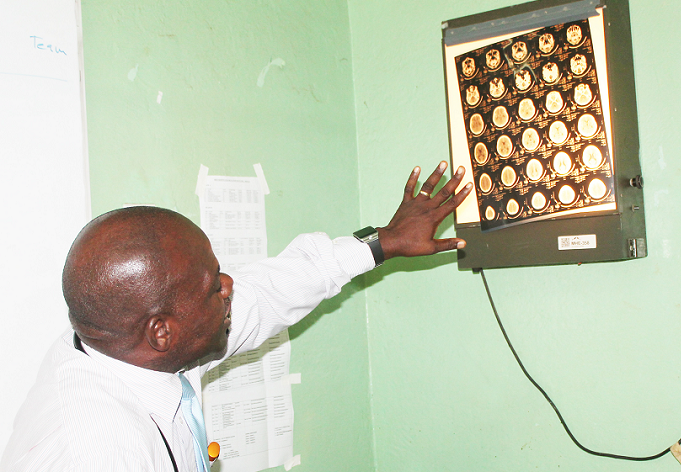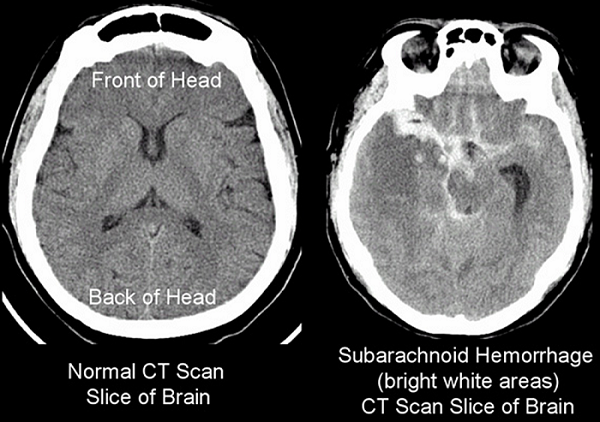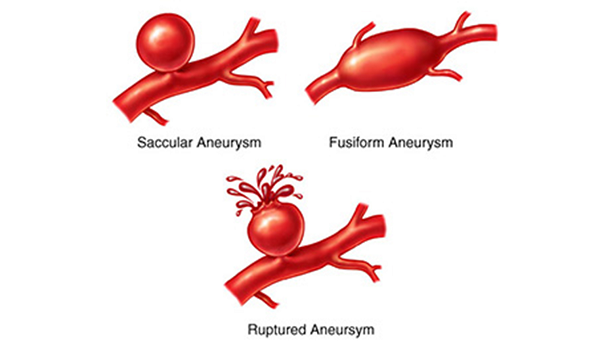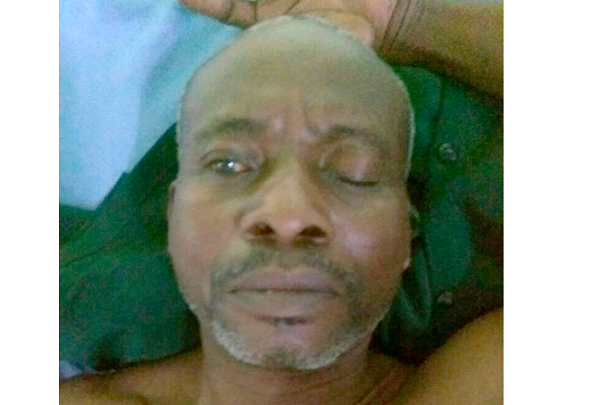
Subarachnoid Haemorrhage. Urgent need for a national Acute Care Centre
One of the acute medical conditions gradually taking a toll on Ghanaians is the rupture of aneurysm in the brain, causing Subarachnoid bleeding.
Advertisement
Dr Thomas Agbemaple, a physician specialist at the 37 Military Hospital, with about 17 years of experience, describes aneurysm as ”a bulge or ballooning in a blood vessel in the brain”.
This can leak or rupture, causing bleeding into the brain. When a brain aneurysm raptures, it is called a subarachnoid hemorrhage (SAH). According to him, almost every month, he sees at least two patients at the emergency department of the hospital who come in with the condition.
He said only a few of the patients usually make a recovery with conservative management. Most of those who are discharged return with a recurrence of the condition in about three weeks and ultimately die.
The common symptom of the condition is a sudden and severe headache, one that the patient would describe as the worst in his/her life. Other symptoms could include dilated pupils, drooping eyelids, blurred or double vision and weakness or numbness on one or both sides of the body.
The causes of the condition, as explained by Dr Agbemaple, include a genetic vulnerability by the patient to the condition. The patient may be born with aneurysm and it may or may not pose a danger in his or her life.
According to Dr Agbemaple, the condition is diagnosed by a computerised tomography (CT) scan which should be done within 72 hours of the onset of the headache and if the condition is not seen but the doctor still suspects aneurysm, a lumbar puncture could help diagnose or a CT angiography could be done.
The challenge with the CT scan is that only a few diagnostic centres in the country have the capability of providing reliable results. Another is that many patients are not able to afford the about GH ¢1,300 that this type of scan costs.
What Dr Agbemaple does, therefore, is to control the pain of the patient, and offer some words of comfort while a neurologist is called to continue with the management.
With this conditon, Dr Agbemaple explains that the patient reaching a medical facility at the early stage is crucial. Another challenge is that most general practitioners who respond to patients at the early stages are not medically trained in carrying out the right procedures to detect or diagnose the condition which would lead to an intervention in the first place.

A neurologist’s perspective
Dr Albert Akpalu is a neurologist at the Korle Bu Teaching Hospital. He is also head of the Stroke Unit of the hospital.
Dr Akpalu sees the rupture of cerebral aneurysm causing subarachnoid haemorrhage as a big problem in the country. According to him, within the last two years, 10 per cent of the 500 stroke cases seen at the unit has been as a result of ruptured cerebral aneurysm. He is often frustrated when patients are not able to get the intervention they need and all they get is the control of the symptoms with conservative treatment.
He says what a patient diagnosed with rupture of the cerebral aneurysm needs is definitive treatment. This involves neurological clipping or neuroradiological coiling.
The definitive treatment is not available in the country not because of the lack of expertise but the unavailability of equipment and infrastructure. Consequently, mortality of untreated aneurysm is high.
A number of patients have gone abroad for neurosurgical/interventional care because of ruptured cerebral aneurysms. These include Israel, UK, USA, India, Europe and South Africa. The cost of treatment, he says is about 50-75,000 dollars. The anxiety and difficulty with this is that time is of the essence and the patient must be stable in order to make the trip. For those who cannot afford to travel for treatment, their only hope is to hope.
He advises that people with a family history of the condition need to have themselves checked. And whether treated or not, certain risks need not be taken. He mentioned some of the risk factors as high blood pressure, smoking, family history, stress and unregulated sex within six weeks of the episode.

The neurosurgeon’s recommendation
Since the condition is only effectively managed with surgery, I spoke to Dr Patrick Bankah, a neurosurgeon at the Korle Bu Hospital. Dr Bankah sees the non- availability of treatment for the condition in the country as part of the larger picture of a lack of focus and necessary attention for acute care.
“The attention has been on communicable diseases but a health system which does not have the needed set up for acute care is one with severe deficits”.
“Surgically treating cases such as cerebral aneurysm and brain tumours is not a one –man-job, it requires a whole team of supporting staff such as an anaesthetist, trained nurses, etc. and a whole intensive care unit dedicated to such work. After the surgery, after care is critical. We do not have such a unit with the needed equipment”.
He mentioned a backlog of 100 patients with brain tumor who urgently needed surgery” but we can only do one in a week”.
Asked how he feels about the situation, Dr Bankah said everybody should be worried because “now malaria is unlikely to kill you but a non-communicable problem such as aneurysm, diabetes and stroke will”.
For this reason, Dr Bankah advocates that “ our health system deliberately needs to focus on acute care as part of our national development since most of them happen as emergencies. We may be able to go for checkups outside the country, but if we have an emergency in our own country, we are more likely to die”.
So bluntly put, Dr Bankah says the cost of establishing a unit for acute care is capital intensive but could be done with private/public partnership. It is not something that can be done by an individual because the cost is high.
He says such a unit will require the training of neurosurgeons, radiologists, anaesthetics, nurses etc and the provision of infrastructure and equipment.
A survivor
A patient, Mrs Akua Boamah,was saved by surgery in Germany. Narrating her experience, she maintains that she was saved by grace, the determination of her husband to seek the appropriate treatment for her at whatever cost and the enormous contribution of Dr Agbemaple. She said Dr Agbemaple explained the condition to her family and advised them to seek early intervention outside the country. Mr Boamah said if she had not been able to get all this going for her, she would have died.
Exactly three years ago, she went on admission at the 37 Military Hospital with a severe headache and even though a scan at a “ reputable” diagnostic centre gave a misdiagnoses, her husband sent the scan to Germany where the condition was seen.
Racing against time, Mrs Boamah was flown to Germany where she was operated on. But for her family’s ability to raise the needed money and the persistence to get a second opinion for her scan, her story may have been different.
The three medical experts the Daily Graphic spoke to are of the view that the rupture of Cerebral Aneurysm, though not known by most Ghanaians, is killing many.
It may sound to the ordinary man as a stroke, but is different and the most unfortunate part is that though it can be surgically managed, this cannot be done in Ghana. They contend that the problem of cerebral aneurysm is a huge one that needs urgent attention. If our health authorities do not act to ensure that such infrastructure is established, the consequence can only be more deaths from subarachnoid haemorrhage from the rupture of cerebral aneurysm and other non-communicable diseases.
With the inauguration of the Catherisation/Angiography suite at the Cardiothoracic centre, it is hoped the equipment would be extended/adapted so that our interventional radiologists can use this to save many more lives.

Mr Anees Edmond Kwame, a 60 -year-old Security Officer, has gone blind in the left eye as a result of a ruptured cerebral aneurysm. As of the time of going to press, he was on admission at the emergency room of the 37 Military Hospital even though the hospital cannot carry out the needed operation to save his life. The needed operation can only be done outside the country. Mr Kwame cannot even mobilise the GH¢ 400 deposit for a bed at the ward, not to talk of paying for care at the Intensive Care Unit.




